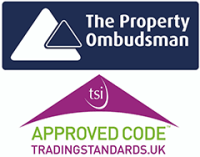Property investment taxes in Portugal explained
(We are NOT Tax advisors and this is a general guide only, please seek professional tax advice before any decisions)
Why Portugal is Good for Property Rental Income
Strong Tourism Market
Due to the Portuguese tourism market ranking high among European countries, millions of foreign visitors come to spend their holidays in this country. In cities like Lisbon, Porto, and Algarve-e.g., Cascais, Lagos, and Albufeira-there is always immense demand for short-term lets, particularly in peak holiday seasons during spring, summer, and autumn.
The sites for short-run letting rentals, such as Airbnb, are very popular, and owners earn quite impressive revenues from letting their properties at much higher nightly rates than the usual during high tourist seasons.
There is still an off-season in which rental revenues can be earned by tourists and business people, particularly in Lisbon and Porto.
High Rental Yields
In cities such as Lisbon, Porto, and Algarve, the net rental yields happen to be high compared with other Western European capitals.
In the case of short-term letting-set up through websites like Airbnb, for example-potential returns are higher than those on offer through long-term rentals, particularly in the most popular tourist destinations.
Long-term letting can also be a source of stable income in large cities and university towns.
Average yields in Lisbon can vary from 4% to 6% per annum depending on the area and type of property.
Growing Demand for Property
The key demand determinants in both the long-and short-term rentals arise from the growing population and an increasing number of expatriates and retirees moving to Portugal. Recently, foreign investors, especially from the EU, the UK, and those from outside Europe, have been investing heavily in Portuguese real estate, pushing demand for rental properties even higher.
Taxes When Buying Property in Portugal
This is one of the major tax obligations that you have to pay at the start of your real estate investment journey. When you purchase your buy to let property, you will have to pay a municipal tax. This tax is paid at between 2% and 6% of the purchase price of the property.
You will also have to pay stamp duty. This is calculated at 0.8% of the price of the property you are investing in.
You will also have to pay a land registry fee valued at € 1,000 and negotiate lawyer’s fees. The lawyer’s fee will depend on the lawyer that you pick to help you through the process.
For planning purposes, have in mind that the tax you will pay at the point of purchase is about 6-9% of the price of the property you invest in.
Rental Income Tax In Portugal
As a foreign investor or a resident in Portugal, if you own a rental property, you must pay tax on the income derived from it. As an investor, you need to know upfront how much tax the government expects from your property. Mon-payment of tax is illegal.
Rental income tax in Portugal is broad and complex. This is why you need all the correct information you can get. There are different categories of rental income tax for different categories of investors in the rental market.
Categories of Rental Income tax In Portugal
Category B
When it comes to taxation of rental income, Category B is set aside for investors who rent out their property for short term periods. This means that your property is occupied by different people for a few days each month. Rental properties with this business model are considered business activities and labelled Category B.
In this category, tax can be taxed in two different ways a simplified regime, or, an organized accounts regime.
Simplified tax regime Portugal
A simplified tax regime means exactly that. A simple calculation of tax from income earned. It applied to individuals who earn less than € 200,000 annually from their real estate business.
In this case, you will pay tax on the gross income of your rental business. Your taxable income is determined by multiplying your annual rental income by a legal co-efficient valued at 0.35. The solution, which is your taxable income, is then taxed at the progressive tax rates applied to the income of Portuguese residents at a rate of between 14.5% and 48%. You will also include a solidarity tax rate of between 2.5% and 5%.
If you have additional income, say from employment or other self-employment business, you can add the taxable amount from your short-term rental business for a combined calculation of your tax obligation.
For Portugal tax residents who opt for the simplified regime, you are unable to deduct any of the expenses that you may have incurred in the generation of the taxable income. Your whole income is taxed.
Non-Resident rental income tax in Portugal
For non-tax residents in the same category, you will have to pay income tax in Portugal. In the simplified regime, non-resident investors pay tax at the rate of 8.75% for short stay villas and apartments. Those who own hotels pay tax at 3.75%.
Non-residents are required to meet the below requirements to qualify to pay property rental income tax;
- Register property with the town hall
- Provide electronic invoices to your customers
- Register as a business providing short stay services
- File income and taxes between April 1 and June 30 on the subsequent year after taxable income is earned.
When your turnover exceeds € 10,000, you will be liable to pay VAT. However, it is best to consult an accountant to advise you on this.
Organized Account Scheme
If you opt for the organized account regime for your tax obligation for a Category B short stay rental services, you will be charged tax similar to a company.
Opting for this category requires the investor to have an income over € 200,000. If you opt for this scheme, you will have to appoint an accountant. They will calculate your business profit and submit the amount of tax that you should pay after deducting all allowable deductions.
You will have to pay your appointed statutory accountant € 1000.
This means that you will be allowed to deduct the expenses incurred in the running of the business.
Deductions that can be made in this category include,
- mandatory social security contributions
- staff expenses, salaries and wages
- any property rentals
- Expenses for the day to day running of the business
- imports of goods required for the business, and
- 1.5% and 4% of tax registration value for apartments and hotels respectively.
Contact your tax professional to guide you further on what you need to declare in this tax category.
Category F
This is the category in which long term rental properties are classified. Long term rental income refers to income earned from homes occupied monthly.
Rental income in this category is paid by both residents and non-residents in Portugal.
Residents pay their tax at 28%, or if they have additional income, they can aggregate it with their rental income to pay a progressive tax on their income. This is advisable if they pay less than or equal to 28% of their aggregated income.
Non-residents with investment property registered in this category pay tax at the rate of 25%.
In this category, investors or property owners are required to issue electronic receipts to their tenants.
When the rental business faces losses, landlords are allowed to write off the loss over six years.
In this category, investors are allowed certain deductions such as:
- Painting expenses for both indoors and outdoors
- Plumbing and electrical system repair
- Cleaning, energy and maintenance expenses of common areas
- Building insurance premium
- Local municipal taxes
- Property security expenses
Landlords aren’t allowed to deduct;
- Work on any structural changes
- Furnishing and decorating the property
- Installing air conditioning
- Mortgage and interest costs
- Utilities
Capital Gains Tax in Portugal
Capital gains tax as the name suggests is a tax on profits after selling hard assets. These assets include real estate and securities.
The Portuguese government charges capital gains tax for the sale of investment property for both residents and non-residents. For tax purposes, non-residents are required to appoint a local legal representative. The appointment has to be written and have express acceptance from the local representative. Where these conditions aren’t met, the property owner is charged a fine of € 5,000. It is now the role of the representative to file and pay taxes on behalf of the non-resident.
For non-residents investors selling their property, capital gains is charged at 28% of the total gain.
If you are an EU resident, you can choose to be taxed in Portugal. However, you have to declare your worldwide income to get the correct rate at which you will be taxed.
Capital gains tax is paid for on all real estate property bought and sold in Portugal unless the building was bought before 1989.
Capital gains tax for residents is substantially different. First, the tax is only charged on 50% of the gains. Secondly, the taxable amount is aggregated with your other income and chard tax at a rate of between 14.5% and 48%.
Portugal residents also have another advantage in capital gains tax payment. Residents don’t have to pay capital gains tax if they sell their main home and reinvest the full amount in another main home in Portugal or the EU region within 36 months.
For residents, if you have had the property for over two years, you are entitled to an inflation relief. This, in effect, goes to reduce the taxable amount on your capital gains.
UK citizens will have to pay capital gains tax in Portugal. To avoid double taxation, tax paid in Portugal is a credit against any tax due in the UK. If there is still a balance, it will have to be paid.
Inheritance Tax in Portugal
When a property owner dies, their beneficiaries will pay an inheritance tax stamp duty of 10% of the value of the property. The spouse and child don’t have to pay the stamp duty. This tax is paid by both residents and non-residents.
Tax Obligations When You Receive Foreign Rental Income
If you are a Portuguese resident, you are required to file your income and taxes paid annually. You must include in your income any rental income earned from outside Portugal for the purpose of taxation. You will aggregate your rental income earned from abroad with your come to pay at a rate between 14.5% and 48%.
Non-Habitual Tax Residents Portugal
The Non-Habitual Tax Resident Portugal regime registers foreigners who are residents in Portugal. Registration in this scheme ensures that double taxation on income earned from other countries doesn’t take place.
High net worth individuals, retirees and financially independent individuals’ residents in Portugal with income from other countries are the targets of this regime. It helps reduce their tax obligation.
Benefits gained from registering in the Non-habitual tax residents in Portugal:
- Tax exemption on all foreign earned income
- You don’t pay wealth tax
- Not charged inheritance tax
- The subsidized rate for all income earned in Portugal. You will pay 20% tax for ten years on all your income earned in Portugal.
- Resident in Portugal’s
What You Need to Know About the Portuguese Tax System
When you earn your income in Portugal, you are to pay income tax. Depending on whether you are a tax resident or not, you will still pay tax. The only difference, in this case, is the rate at which residents and non-residents pay.
There are a lot of issues surrounding tax that every investor in Portugal should be aware of. The knowledge of these tax issues is to the benefit of the investor. Where one can’t have these at their fingertips, they can hire an accountant to help.
These aspects of taxation that you should know include:
Tax System In Portugal
The tax system in Portugal is divided into state and local taxes. How much one pays is dependent on their income, expenses and assets owned.
It is compulsory for foreigners to register as taxpayers before they can earn money in Portugal. Taxpayer registration is easy. All you need to do is fill a form on the tax authority portal and become a registered taxpayer.
Federal Taxes in Portugal
Taxes charged by the federal government include; income tax from employed and self-employed persons, capital gains tax, inheritance tax, VAT, and, corporate taxes.
Local Authority Taxes
A municipal tax is charged by local authorities to homeowners. It is based on the value of the land in the region in which those charged live. This tax does not apply to tenants.
When your home also exceeds € 600,000, you are charged a higher level of tax.
Portugal’s Tax Year
The tax year is a period of twelve months that your income is assessed for the purpose of charging tax or confirming that the correct tax was paid.
The Portugal tax year tuns from January 1 to December 31.
Taxable Income in Portugal
This is the amount of income earned by an individual or business from which tax is charged. Normally, tax is not charged on the full income depending on how it is earned. Individuals who earn a salary have some deductions and reliefs from their income. The remainder is taxed.
Companies and businesses are allowed to deduct some expenses from their income to arrive at their taxable income.
The taxable income is then taxed at different rates for individuals and companies.
Taxable income is derived from all sources of income. It can be charged on rental income, business income, salary, inheritance.
Taxable income is divided into six categories:
A- Employment income
B- Self-employment income
E- Investment income
F- Rental income
G- Capital gains from the sale of assets, property and stocks
H- Pension income
Income Tax Rates in Portugal
Income tax rates are percentage rates applied to income to arrive at the tax payable or due to the government.
There are different tax rates for different types and amounts of tax. Personal income from salary or self-employment in Portugal is taxed at a progressive tax rate from 14.5% to 48% depending on the amount of income earned.
Rental income, dividends, capital gains tax are charged tax at a rate of 28%. Inheritance tax is charged at 10%.
Tax Reporting Obligations in Portugal
Everyone who earns an in income in Portugal is supposed to file their returns electronically. This should be done between April 1 and 30 June. The tax filed is from the income earned the previous year. Tax returns for the year 2020 should be filed between April 1 and June 30 2021.
Once you have filed your returns, the tax authorities then assess your income and issue you with your due tax, which you should pay within a month of assessment.
Local Legal Representative
Foreigners who are not tax residents also need to pay taxes in Portugal. Without a tax registration, they can’t do it. They will therefore need to appoint a local representative in writing. Their representative will file and pay taxes on their behalf.
Corporate Tax in Portugal
This is the tax paid by companies. It is charged at a flat rate of 21% of taxable profits. Municipal taxes of 1.5% and additional taxes of profits over € 1.5m.
Small and medium-sized companies pay tax at 17%.
Small businesses and self-employed individuals can opt to pay a turnover tax if their revenue is below € 200,000. This is known as a simplified regime. They can also opt for an organized regime, which allows for a deduction of expenses before tax is charged.
How To Get Tax Assistance In Portugal?
Tax issues are complex and complicated.
Non-payment of tax is illegal, and you will face high fines and jail time when arrested. It is then best to consult an accountant to assist you with all the matters relating to tax issues.
Paying Tax In Portugal As A Foreigner
If you derive your income from Portugal, you need to be a registered taxpayer before you start earning.
However, there are some instances where foreigners earn income from the country while not being registered taxpayers. At this instance, the foreigners need to appoint a legal representative who will handle all their tax issues, including filing and payment of tax due. This is especially common with property investors, especially when you buy property to let and you do not live in Portugal.
How To Become A Portuguese Tax Resident?
For the purpose of complying with Portugal’s tax rules, it is important that one becomes a registered taxpayer. It is very easy to become a taxpayer. Fill out a form on Portugal’s tax collection agency, and you become a resident taxpayer.
You can also become a Portugal tax resident by living and working in Portugal for a minimum of 183 days within a calendar year. You can also be considered a tax resident if you have a house in Portugal at the end of a given tax year.
You are also considered a tax resident if you work for the government even out of the country. You are also considered a tax resident if you work for a Portuguese ship. Further, if your spouse is a resident, then you become a tax resident.
Non-Habitual Tax Resident in Portugal;
As a tax resident, you are charged tax directly and will not need a representative. As a non-habitual tax resident, you will be charged a lower rate of tax. You will also not pay tax for income earned from foreign countries.
Would You Like to Invest In Portugal?
If you would like to become a foreign investor in Portugal, you now have a lot of information to help you make up your mind.
The above is all the information you would need to stay on the right side of the law when it comes to investing in property in Portugal. You can choose the different methods to pay tax depending on the amount of revenue it brings in per year. It also depends on whether your property is a Category B or F.
You also know how to become a tax resident of Portugal if need be. You can also become a resident in Portugal if you applied for residency through the Golden Visa. With a real estate investment worth over € 350,000, you qualify to apply for the Portugal golden visa. When you succeed, you can become a Portugal resident.
When you are a resident, you can live in Portugal and manage your investments. You can also get to enjoy the high quality of life and the pleasant weather in Portugal.
Finally
As an investor in property in Portugal, it is important to keep up with all the rules around paying tax from the income derived from your property. Pay your taxes to avoid problems with the government whether you are a resident of Portugal or not. Property investment in Portugal results in high returns to the investors.




